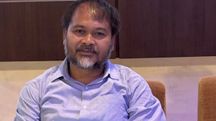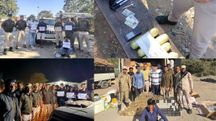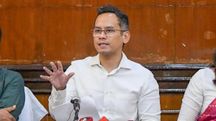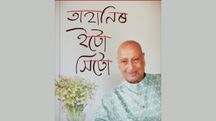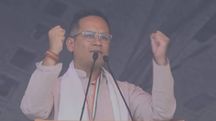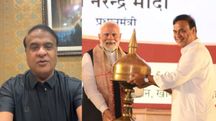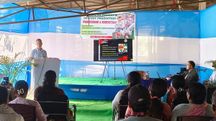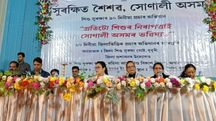How ULFA (I) chief Paresh Baruah survived four attempts on his life, still remains out of peace deal
Here is an excerpt from senior journalist and researcher Rajeev Bhattacharyya’s recently released book ‘ULFA: The Mirage of Dawn’ which takes a peek into these attempts on the life of ULFA (I) chief Paresh Baruah.
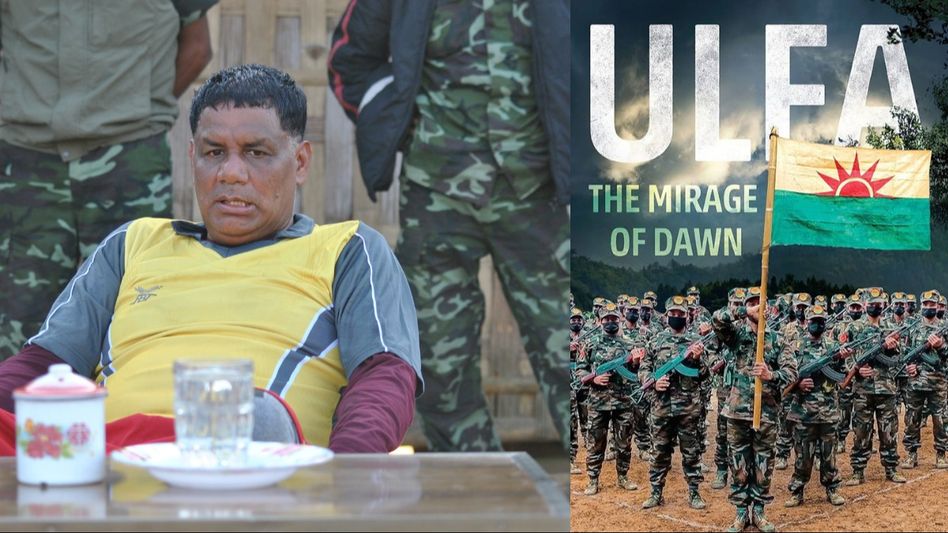
Very few rebel leaders from India have escaped assassination attempts so may times as the supremo of the anti-talks faction of the banned United Liberation Front of Asom (ULFA) Paresh Baruah who is also one of the most wanted men in the country.
These attempts were orchestrated allegedly by different agencies over a long span of time but Baruah was able to successfully duck for cover on every occasion owing to an interplay of many factors.
Here is an excerpt from senior journalist and researcher Rajeev Bhattacharyya’s recently released book ‘ULFA: The Mirage of Dawn’ which takes a peek into these attempts on the life of Baruah.
Paresh’s close brushes with death began with an accidental episode in Bhutan a week after the general council meeting drew to a close early in 1996 at SamdrupJongkhar. Paresh decided to travel up to some distance in the contiguous Trashigang district in the country in a vehicle with senior functionary Tapan Barua, who later headed 28 Battalion. Two hours into the journey, a speeding truck belonging to the Border Roads Organisation of the Indian Defence Ministry hit the vehicle from behind on the hilly road. The driver somehow managed to prevent the vehicle from hurtling hundreds of metres below into a gorge. The truck was overtaken after some time, stopped and the driver was beaten up till he was almost unconscious.
One of the planned attempts on Paresh’s life, which almost killed him, happened at the Satcherri camp in Bangladesh, ahead of Operation All Clear. It was a meticulous exercise planned at least three years in advance by the Special Branch of the Assam police. A man in his mid-twenties, named John, was indoctrinated to perform the task in return for recruitment in the police and a hefty sum of money. It was decided that the attempt would have to be made at a convenient location in Bangladesh, either at Dhaka or at the Satcherri camp. John was trained not to make any query about Paresh or even about the organization after he joined ULFA to avoid being suspected of being a spy. He would have to simply wait for the opportunity to strike, after which he would have to make a dash towards the border. If he was apprehended by the Border Security Force (BSF), he was to be identified as being engaged with Assam’s Special Branch.
Also Read: Assam: Except for Paresh Baruah, all founding members of ULFA were here today, says Himanta Biswa Sarma
By a stroke of fortune, John succeeded in getting stationed at the Satcherri camp a year after enrolling in the outfit. It was six months later that he heard murmurs about the possibility of Paresh visiting the camp. The leader arrived a week after this, for a brief stay of only two days, during which he held meetings and interacted with all the functionaries at the camp. John’s task was rendered easier when he was chosen to stand guard as part of a two-member squad outside Paresh’s hut at night. He was equipped with an AK-81 assault rifle, which he had never operated earlier. On the second day, his queries about the rifle surprised a few of his colleagues although they did not attach any importance to it. He was also noticed spending more time in his barrack with his bags, as if he were searching for something. On the next day he vanished from the camp, never to be seen again. Later, Paresh and the other functionaries surmised that he had not been able to gather the nerve to pull the trigger. Perhaps he realized that escaping from the camp to the nearest point on the Indian border in Tripura after executing the task was fraught with risks. So he quietly slipped out of the camp, crossed the border without being intercepted and reached Guwahati. Years later, John admitted before the media that he had escaped from the camp with the assistance of a senior functionary of the ATTF but denied having undertaken any assignment to assassinate Paresh.
Another attempt to kill Paresh made for a hilarious tale. A senior officer of Assam police, in a bid to siphon off a large corpus of funds, came up with the idea of assassinating Paresh through a crime syndicate in Bangladesh. Apparently, the syndicate demanded a huge sum of money for the operation, which could not have been paid by the Assam police alone. So, the officer firmed up a deal with the intelligence agency for a joint operation, following which he received the funds but probably paid only half the amount as advance payment to the syndicate. The syndicate gave him the impression that it had begun to prepare for the task in earnest after receiving the advance payment. Weeks later, the officer was also apprised about the time frame and spot in Dhaka where Paresh was to be gunned down by a team of assassins.
The officer was confident that the operation could not fail since the syndicate had sharpshooters on its payroll. So it was unsurprising when, true to his expectation, the syndicate informed that Paresh had been shot at a restaurant while dining with a financial counsellor, Rumi Khan. Extremely thrilled with the development, the officer fed the media the story, which was featured on the front page of most dailies the following day. So, the intelligence agency was confused when its agent in Dhaka, who had been tasked to confirm the episode, cast doubts on the syndicate’s claim. Adding to the uncertainty was Paresh’s vanishing act, which lasted almost a month. He stopped interacting with senior ULFA functionaries in Dhaka and was nowhere to be seen. Neither did he call any senior journalist or acquaintance in Assam. The officer in charge was convinced that he had been killed. Still, the agency’s reluctance to accept his claims compelled him to embark upon another operation to verify the claim.
It was resolved to spread the news that Paresh had been killed at his native village of Jeraigaon. The ruse worked, as one of Paresh’s relatives decided to go to Dhaka to confirm the news. Trailing him was a sub-inspector of police, who was somehow able to confirm that Paresh was still alive. The relative returned home, and Paresh surfaced with a bang to inform the media about the failed attempt to assassinate him. The officer knew he had been duped by the syndicate, which seemed to have understood the dangers involved in executing such a scheme, given Paresh’s contacts in the government and security agencies in Bangladesh. There was also no way to retrieve the funds given in advance to the syndicate for the operation. Later, the officer circulated a story among some of his associates that the syndicate had carried out the attack at the restaurant and that Rumi Khan was killed. Paresh was supposed to have escaped by jumping off the first floor of the restaurant seconds after the gunman pulled the trigger.
Within about four months of the failure of this operation came yet another assassination attempt in Dhaka. Paresh believed that this one was another endeavour by an Indian security agency. As the ULFA leader was on his way to meet an acquaintance in the city, a person hurled a big boulder at the vehicle in which he was travelling, smashing the windscreen. Paresh was seated in the front with the driver, but escaped unhurt again as the boulder missed its target. The details about this episode are fuzzy as Paresh could not gather any details about the plan or the persons involved. Why was a gun not used if the person was tasked to kill him? Probably, as Paresh surmised later, since the incident occurred at a crowded corner in Dhaka, escape from the spot would have been difficult for the assassin after pulling the trigger.
(Excerpted with permission from HarperCollins Publishers India)
Copyright©2025 Living Media India Limited. For reprint rights: Syndications Today

